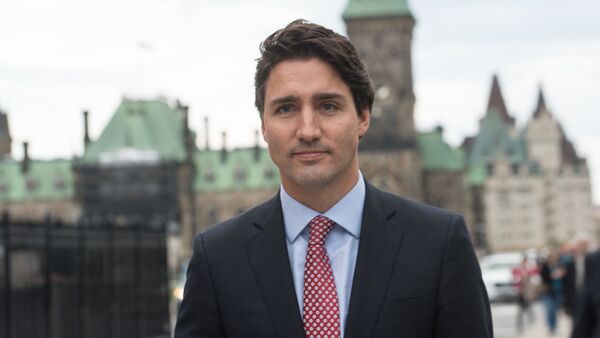The leader of the Liberal Party of Canada, known for his good looks and social skills, has already promised to bring numerous changes to his country, including a more open and dialogue-centered foreign policy than former Conservative Prime Minister Stephen Harper.
Under the Conservatives, Canada developed a very strong anti-Russian rhetoric that especially intensified amid the Ukrainian crisis. Canada became one of the first Western countries to introduce harsh anti-Russian sanctions and started blacklisting Russian politicians and renowned businessmen that the Canadian government accused of meddling in Ukraine’s affairs.
The backbone of Harper’s political support came from the two Prairie-provinces of Alberta and Saskatchewan, which traditionally had a strong Ukrainian presence. There is no doubt that economically powerful Ukrainian diaspora in the Prairies had impact on Canadian foreign policy under the Harper government.
This will likely change with Trudeau, who received most of his support from the Atlantic Provinces, big cities in Central Canada, the Greater Vancouver Area and all three Northern Territories. In other words, Trudeau will be less concerned about pleasing voters in Alberta and Saskatchewan, where his Party won only five electoral districts (ridings) across the two provinces while the Liberals received a total of 184 seats nationally.
During his election campaign, Trudeau promised to establish a dialogue with Iran following the successful nuclear deal. It’s worth noting that the Conservatives cut diplomatic ties with the Islamic Republic in 2012 by closing down the Canadian embassy in Tehran. Now considering that Russia and Iran have warm relations and common political interests, Trudeau would have to speak with Moscow if he plans to thaw relations with Tehran.
Trudeau’s willingness to focus on a dialogue and emphasize the concept of “soft” power, the idea that Canada was always known for in the past before Harper’s Conservatives took over Ottawa in 2006, opens a new chapter in Canadian foreign policy.
One shouldn’t forget that Trudeau’s own father, Pierre-Elliot Trudeau, the former Prime Minister of Canada, was one of the first Western leaders to recognize the People’s Republic of China in 1970. Furthermore, Trudeau the father worked to develop better relations with the Soviet Union even after Moscow’s involvement in Afghanistan when other Western countries, especially the United States under the presidency of Ronald Reagan, viewed the Soviet Union as “the Evil Empire.” Pierre Trudeau believed that the Soviet Union deserved the right to be heard and urged the two super powers to find a political compromise to make the world a safer place for everyone. Finally, let’s not forget the elder Trudeau’s lifelong friendship with former Cuban leader Fidel Castro. The two leaders were so close that Castro was one of Pierre Trudeau’s pallbearers at his funeral in 2000.
Justin is the oldest son of Pierre Trudeau and the father and son spent a lot of time together when the new Prime Minister was growing up. A lot of his social and political views were firmly shaped by his father's beliefs. Therefore, knowing the bold, independent and reformist nature of his father's politics, one can expect similar action from the new Prime Minister, including a hope for warmer relations between Canada and Russia.

